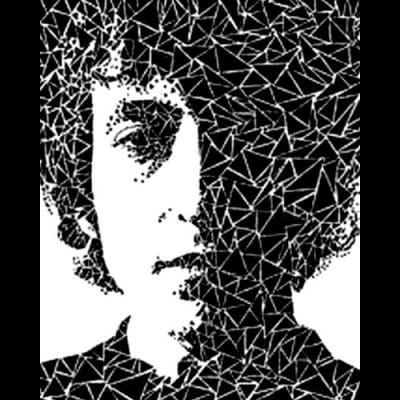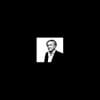Bob Dylan and the literary idiot wind

Oh, the anger of the fusty at the announcement of Bob Dylan's Nobel Prize! What an outcry from the academy – not the Swedish one, mind you, but that of the world church of literaturology.
The panic of the literary bureaucracy, ensnared in its certainties and steeped in its petty calculations, its half-baked prognostications, its crafty shifts of position, has been palpable. Was the choice of Dylan political or non-political? Why an American? Why not a woman? Or a voice, any voice, of a visible minority? Or this one, who's been waiting 20 years? Or that one, who's given up hope?
The truth, however unpleasant it may be for the fuddy-duddies, is that awarding the Nobel Prize in Literature to an author who has written just one book is no more surprising than giving it to Dario Fo or Winston Churchill, neither of whom wrote many more.
And here's the even greater truth: to bestow it on one of our last popular poets, the distant relative of Rutebeuf, Villon, and all the minstrels and songsters of solitude and dereliction; to consecrate a troubadour, a bard of the brotherhood of lonely and lost souls; to crown the author of ballads that have been, to borrow André Suarès's phrase about Rimbaud, "a moment in the life" of so many people in the twentieth and twenty-first centuries makes a lot more sense than pulling out of a hat the obscure Rudolf Christoph Eucken or picking poor old Sully Prudhomme instead of Tolstoy.
Of course, it's wrong to respond priggishly to priggishness. But, confronted with those who have been shouting, "That's not literature! It's just not!" one is tempted to side with Francis Ponge who, citing Lautréamont, defined the poet (he would say "proet") as a bard or troubadour who, by expressing the "voice of things," becomes "the most useful citizen of his tribe." And to whom does that definition apply better than to the author of Chimes of Freedom or Long and Wasted Years, which bring to life and to music what the critic Greil Marcus has called the "invisible republic" of American culture?
One is tempted to side also with Mallarmé, who urged us, in more or less the same terms, to "give a purer meaning to the words of the tribe." Again, who better than this collage artist, this chameleon of citation and intertextuality, this laconic lyricist, this verbal alchemist who spent his life reinventing others' words and his own, uncovering the embers of the era beneath the ashes of the day's defeats, and transmuting into gold the lead he heard on the radio?
Or consider the familiar distinction between scribes, who make instrumental use of language, and writers, who spin it into silk. Wasn't Dylan alluding to something similar when, after years of struggle for civil rights, resistance to the war in Vietnam, and support for the feminist revolution, he titled one of his most beautiful songs I'm Not There, as in, I'm not here anymore, no longer your servant, goodbye to all that, so long?
But the true question lies elsewhere. The most conclusive exercise would be to compare apples with apples and the author of Blonde on Blonde with those who were and remain his key contemporaries.
Dylan is a Kerouac who can sing. He's a Burroughs who put to music the great parade of the Beat generation, with its wild parties and naked lunches. He is what Allen Ginsberg said in describing his shock upon first hearing A Hard Rain's A-Gonna Fall in 1963, a song in which the accents and pacing, the abrupt changes in emphasis, the voyage to the very heart of words and the imagination all echo the best literature of the time – but with music as well!
Are we going to hold that against Dylan, charge him with the sin of having grafted the rhythms of the blues, soul, and country music onto those of the Bible, William Blake, and Walt Whitman? Why should we withhold from the trouper of the Never Ending Tour (more than two thousand performances!) the dignity accorded without hesitation to the author of On the Road?
It was Louis Aragon, I think, who said that setting a poem to music was like moving from black and white to colour. Aragon, the poet sung by Léo Ferré and others, believed that a poem unsung was half dead.
Well, then, it seems that Dylan was the only one of his era to have been able to embody fully the musicality that is essential to great poetry, the second voice that haunts every poet, but which he generally delegates to those who recite or read him, the power of song that is his ultimate and secret truth and that some have gone mad – literally and tragically mad – trying to pull from cage into canto.
Bard and rhapsodist both. A poetico-musical revolution in one man and one body of work. I like to think that it was this tour de force – this prolonged stroke of genius that is forever young – that the Nobel committee was recognising in its selection.
The writer is one of the founders of the "Nouveaux Philosophes" (New Philosophers) movement. His books include Left in Dark Times: A Stand Against the New Barbarism, American Vertigo: Traveling America in the Footsteps of Tocqueville, and the forthcoming Spirit of Judaism.
Copyright: Project Syndicate, 2016.
www.project-syndicate.org
(Exclusive to The Daily Star)

 For all latest news, follow The Daily Star's Google News channel.
For all latest news, follow The Daily Star's Google News channel. 



Comments